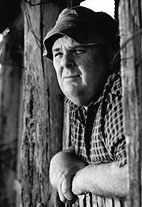Murray
& Modernity |
|
|
"As the Enlightenment canto we call Bohemia evolved into modernism, the universities became its principal home and support. Early modernism was enormously liberating, because it brought poets a new, superrefined readership and freedom from stilted older styles which a wide readership had long enjoyed and rather imprisoned us in. Modernism made the subject matter of poetry practically infinite, and gave approval to registers and vocabularies previously stratified in a rigid class hierarchy that considered Kipling ‘low’ and Tennyson ‘elevated’. But alas! If modernism gave us a sophisticated new readership, it also blew away all our older readerships and made us dependent on itself. |
| And it had agendas and class purposes of its own. For some,
writers and critics, it was principally an aesthetic, for others it was a political
programme. And, one bright day or another, each of us realised or were told that we were
owned, and that certain conscript service would be expected, certain themes handled in an
approved way or left alone. In default of which we would be undermined, dismissed from
serious consideration as artists, and sent where there was no longer any public for us.
Because for bad music and bad painting and bad movies there are free markets, but the
market for bad poetry is itself within the bounds of radical modernism. The real
breakthroughs of literary modernism are, I suspect, all far behind us, and only the fetish
of breakthrough itself, plus recyclings of old innovation, trivial variations, remain in
our time. The next genuine change in art will come when a new patronage arises." --Les Murray, "Defense of Poetry" (1998) Discussion Question: What does this quote reveal about Murray's attitude towards modern poetry and towards modernity in general? |
|
Poetic Responses to Modernity Republics are for those who dream of rising
socially; monarchies are for the self-relegated. The following poems reflect on the modern world in varying ways. Some of these point to a world of fascist possibilities in the treatment of the poor, the disabled, the sacred, even the fat. Some look at the ironies of the modern world in our relationship to the land, to beauty, and to work. And some suggest that the modern world is finally a place of emptiness. "Politics and Art," "An Era," & "The Beneficiaries"
"Dog Fox Field" & "It Allows a Portrait in Line-Scan at Fifteen"
"The Rollover" & "On Home Beaches"
"Mirror-glass Skyscrapers," "Water-Gardening in an Old Farm Dam," & "Inside Ayers Rock"
"Antarctica"
Under God, from this
time forward
|
|
